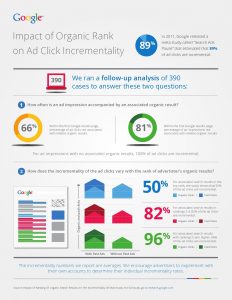The Essential Steps to Boost Your Online Visibility and Drive Organic Traffic
In today’s digital age, the success of a business greatly depends on its online presence. With almost every consumer turning to search engines to find products and services, securing a prominent position in search results has become crucial. That’s where Search Engine Optimization (SEO) comes into play – it’s the key to catapulting your website to the very top. In this comprehensive guide, we will provide you with actionable strategies and expert tips to enhance your website’s visibility, supercharge organic traffic, and get your business on the path to success.
What Exactly is SEO?
Before diving into the intricacies of SEO, let’s first decipher its true essence. SEO, or Search Engine Optimization, refers to a set of techniques and practices aimed at improving website visibility and ranking in search engine results pages (SERPs). It involves optimizing various aspects of your website – from the quality of your content to the technical structure – with the intent of boosting your online presence and attracting organic (non-paid) traffic.
The Importance of SEO for Business Owners
As a business owner, investing time and resources into SEO is a decision that can yield long-term benefits. Here are some compelling reasons why SEO should be an integral part of your digital marketing strategy:
- Increased Visibility: Ranking higher in search results brings visibility to your business, allowing potential customers to find you quickly and easily.
- Boost in Organic Traffic: By appearing on the first page of search results, you drastically increase your chances of attracting quality traffic to your website, resulting in potential new customers.
- Improved User Experience: A well-optimized website enhances user experience by providing valuable and relevant information, efficiently guiding visitors through your site, and ensuring quick loading times.
- Building Trust and Credibility As your website’s ranking improves, users tend to trust your brand more as they associate higher placements with reliability and authenticity.
- Cost-Effective Marketing: SEO offers a cost-effective marketing strategy compared to other digital marketing channels, such as paid advertising.
Understanding How Search Engines Work
To successfully optimize your website, you must first understand how search engines operate. While the algorithms are complex and ever-evolving, these are the main steps search engines follow when determining which websites to show for a given search query:
- Crawling: Search engines continually send out automated bots, known as spiders, to browse and scan websites. These spiders collect information about the content, structure, and links on your site.
- Indexing: Once a spider has crawled your website, the search engine indexes it. Indexing involves categorizing your site’s content and storing it in their massive database.
- Ranking: Finally, when users perform a search, the search engine retrieves relevant results from its index and ranks them based on various factors like relevance, authority, and user experience.
By optimizing your website, you ensure that search engines can crawl and index it more effectively, thereby increasing your chances of ranking higher.
Essential SEO strategies to Boost Your Business
Now that we have a foundational understanding of SEO let’s explore some essential strategies that will give your website a competitive edge:
1. Keyword Research
Keywords are the building blocks of successful optimization. Comprehensive keyword research forms the bedrock of your SEO strategy. By identifying the right keywords related to your business, you can align your content and website structure to match users’ search intent. Using keyword tools, such as Google Keyword Planner or SEMrush, you can find relevant and high-quality keywords that strike a balance between search volume and competition. Incorporate these keywords naturally into your website’s content, headings, URLs, and meta tags.
Example: If you run a bakery in Seattle, incorporating keywords like “best bakery in Seattle” or “freshly baked goods in Seattle” would be highly beneficial.
2. Optimized and High-Quality Content
Content is king! Ensuring your website contains informative and engaging content is vital for SEO success. Develop a content strategy that aligns with your target audience’s interests and incorporate relevant keywords. Employ best practices such as breaking content into clear headings, using bullet points or numbered lists, connecting to trustworthy external sources, and ensuring readability.
Example: You can create blog posts that discuss baking tips, pastries, or customer success stories in your bakery.
3. Technical SEO Enhancement
Technical SEO involves optimizing the back-end of your website to improve its crawlability, indexation, and overall performance. It ensures that search engine crawlers can efficiently access your website.
Here are some key technical areas to focus on:
- Website Speed: Optimize your website’s loading speed to enhance user experience and help search engines evaluate your pages quickly. Minimize large image file sizes, leverage browser caching and compress CSS and JavaScript files.
- Mobile Optimization: With mobile devices accounting for a significant portion of website traffic, ensuring your website is mobile-friendly is crucial. Implement responsive design, as it adapts your site layout to different screen sizes automatically.
- URL Structure: Use descriptive and relevant URLs that include your target keywords. Keep them concise, consistent, and logical.
- Site Architecture and Navigation: Plan your website’s structure in a logical and organized manner, allowing search engines to understand the hierarchy of pages.
4. Local SEO Optimization
If your business caters to a specific geographical audience, local SEO optimization is the key to attracting local customers. Leverage platforms like Google My Business, Bing Places for Business, and Yelp to optimize your online presence.
- Claiming Your Business Profiles: Accurate and up-to-date profiles drive local search visibility and help customers find essential information about your business. Fill in all relevant details, including address, contact information, business hours, and services offered.
- Customer Reviews: Encourage satisfied customers to leave reviews on platforms like Google My Business. Regularly respond to both positive and negative reviews to show your commitment to customer satisfaction.
- Local Citations: Ensure consistent business information such as name, phone number, and address across online directories and platforms. This helps search engines confidently associate your business details with local intent.
5. Link Building
Link building is an essential off-page SEO strategy to boost your website’s authority and credibility. Generating quality backlinks from reputable websites demonstrates your website’s value to search engines. Focus on building a diverse portfolio of backlinks through tactics such as:
- Guest Blogging: Write informative and relevant guest posts for other industry-specific websites, including a link back to your site.
- Broken Link Building: Find broken links on influential websites, and propose alternative resources (including your content) to replace the broken link.
- Building Relationships: Engage with industry influencers, collaborate on content creation, and mutually exchange backlinks.
Monitoring SEO Performance
To gauge the effectiveness of your SEO activities and identify areas for improvement, tracking and monitoring your website’s SEO performance is essential. Utilize analytics tools such as Google Analytics and Google Search Console to garner insights into:
- Organic Traffic: Measure the amount of organic traffic your website attracts over time. Examine trends and fluctuations to identify successful optimization efforts.
- Keyword Rankings: Monitor your website’s rankings for important keywords and track their progression.
- **






